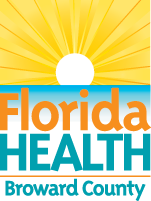It's a New Day in Public Health.
The Florida Department of Health works to protect, promote, and improve the health of all people in Florida through integrated state, county, and community efforts.
Quit Tobacco for Great American Smokeout
November 15, 2017
Contact:
Candy Sims, Public Information Officer
Candy.Sims@flhealth.gov (954) 467-4784 / (954) 895-5745
Fort Lauderdale, Fla. — In observance of the Great American Smokeout (GASO), sponsored by the American Cancer Society, Tobacco Free Florida and the Florida Department of Health in Broward County (DOH-Broward) encourage tobacco users to make a plan to quit smoking on Thursday, November 16, 2017.
The Great American Smokeout raises awareness about the dangers of smoking and the many effective resources available to help smokers successfully quit.
Smoking remains the leading cause of preventable disease and death in Florida and the United States.[i][1] On average, smokers die 10 years earlier than nonsmokers.[ii][2] For every person who dies, at least 30 people live with a serious smoking-related illness.[iii][3] About 30 percent of cancer deaths in Florida are caused by cigarette smoking.[iv][4] Smoking not only affects one’s health, it also impacts individuals financially. A pack-a-day smoker in Florida can spend more than $2,100 in just one year and more than $10,500 in five years.
The Tobacco Prevention program at DOH-Broward, in collaboration with Nova Southeastern University’s Area Health Education Center will promote the commemoration of this event at worksites throughout Broward County. Tobacco users will be encouraged to quit tobacco products for one day in hopes that they may consider quitting tobacco.
Tobacco Free Florida’s Quit Your Way program makes it easier than ever for tobacco users to access free tools and services to help them quit. More than 159,000 Floridians have successfully quit tobacco using one of these free services. For more information, please visit tobaccofreeflorida.com/quityourway.
Smokers can also access Tobacco Free Florida’s online Cost Calculator to find out how much money they could save by quitting at tobaccofreeflorida.com/calculator.
###
About the Florida Department of Health
The department, nationally accredited by the Public Health Accreditation Board, works to protect, promote and improve the health of all people in Florida through integrated state, county and community efforts.
Follow us on Twitter at @HealthyFla and on Facebook. For more information about the Florida Department of Health please visit www.FloridaHealth.gov.
About Tobacco Free Florida
The department’s Tobacco Free Florida campaign is a statewide cessation and prevention campaign funded by Florida’s tobacco settlement fund. Since the program began in 2007, more than 159,000 Floridians have successfully quit using one of Tobacco Free Florida's free tools and services. There are now approximately 451,000 fewer adult smokers in Florida than there was 10 years ago, and the state has saved $17.7 billion in health care costs. To learn more about Tobacco Free Florida’s Quit Your Way services, visit www.tobaccofreeflorida.com or follow the campaign on Facebook at www.facebook.com/TobaccoFreeFlorida or on Twitter at www.twitter.com/tobaccofreefla.
[i][1] U.S. Department of Health and Human Services. The Health Consequences of Smoking—50 Years of Progress: A Report of the Surgeon General. Atlanta: U.S. Department of Health and Human Services, Centers for Disease Control and Prevention, National Center for Chronic Disease Prevention and Health Promotion, Office on Smoking and Health, 2014.
[ii][2] Jha P, Ramasundarahettige C, Landsman V, et al. 21st Century Hazards of Smoking and Benefits of Cessation in the United States. New England Journal of Medicine 2013;368:341–50 [accessed 2017 Mar 28].
[iii][3] U.S. Department of Health and Human Services. The Health Consequences of Smoking—50 Years of Progress: A Report of the Surgeon General. Atlanta: U.S. Department of Health and Human Services, Centers for Disease Control and Prevention, National Center for Chronic Disease Prevention and Health Promotion, Office on Smoking and Health, 2014.
[iv][4] Lortet-Tieulent J, Goding Sauer A, Siegel RL, Miller KD, Islami F, Fedewa SA, Jacobs EJ, Jemal A. State-Level Cancer Mortality Attributable to Cigarette Smoking in the United States. JAMA Intern Med. 2016;176(12):1792-1798. doi:10.1001/jamainternmed.2016.6530.





Connect with DOH